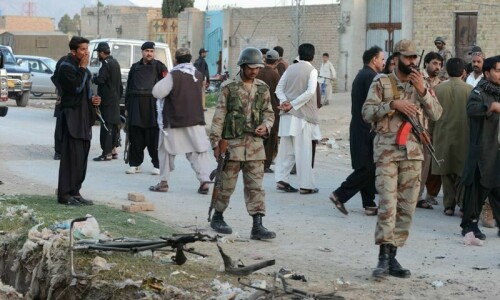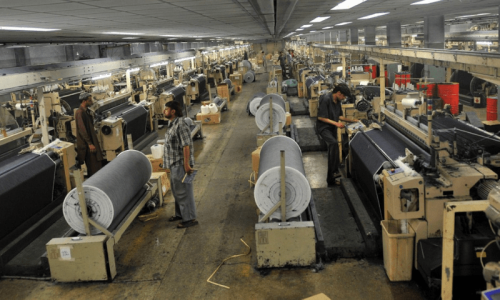State Bank raises benchmark interest rate to 13.25pc

The State Bank of Pakistan (SBP) raised its main policy rate by 100 basis points on Tuesday to 13.25 per cent, citing increased inflationary pressures and a likely near-term rise in prices from higher utility costs.
SBP Governor Reza Baqir said the decision to raise rates took into account upside inflationary pressures and the impact from recent increases in utility prices.
Based on these factors, the SBP revised its inflation projection for the ongoing fiscal year to 11-12pc, "A little higher than earlier estimates, due to which we have increased the policy rate."
"If you look at the time-path of this inflation, in the next few months, due to one-time factors, inflation will be higher. These have been accounted for [in our projections]. In the second half of the fiscal year, according to our projections, inflation will be lower. By the start of the next fiscal year, there will be a noticeable decrease in inflation," he said.
The central bank has now increased its main policy rate nine times since the beginning of last year, raising it by a total of 750 basis points in a bid to control inflation, a widening fiscal deficit and pressure on the rupee.
Inflation eased slightly last month to 8.9pc but Baqir said he expected pressures to continue.
Under the bailout accord, the IMF said it expected “appropriately tight monetary policy” would bring inflation down to 5-7pc in the medium term.
With slowing growth, a budget deficit that has climbed to more than 7pc of gross domestic product and currency reserves of little more than $7 billion, Pakistan has been struggling to ward off a debt and balance of payments crisis for more than a year.
After initial reluctance, Prime Minister Imran Khan's government turned to the IMF for support and finalised a $6bn loan agreement this month that will unlock an additional $38bn in loans from other international partners.
The three-year agreement for Pakistan's 13th IMF bailout since the late 1980s has seen a sharp drop in the value of the rupee after the central bank agreed to a “flexible, market-determined exchange rate”.
The accord also foresees structural economic reforms and a widening of the tax base to boost Pakistan's chronically weak tax revenues.













































